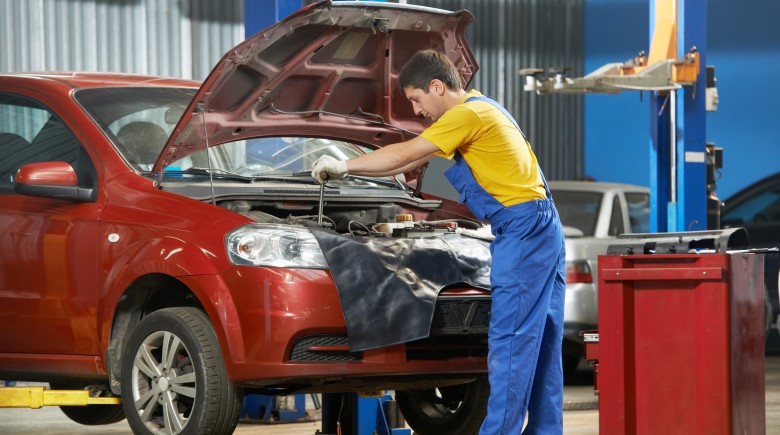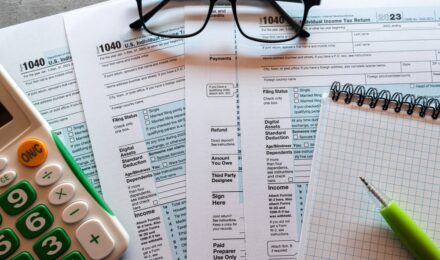In a tight economy, it pays to take care of your car to ensure it runs longer and with less operating expenses. Some repair costs could end up being quite large, but performing some basic car maintenance regularly can help you save money in the long run.
Regular Oil Changes
Just how often you need to change the oil and oil filter in your car will depend partly on the model and the type of oil you have in it. If you have the more standard type of oil in your car, it is usually recommended that you change it every 3,000 miles. Your car manual may suggest that you do it less frequently.
More specialized oil, such as synthetic oil, can be changed far less often, but you need to know the recommended mileage and make sure that it is changed when recommended. This will keep your engine in better shape, and prevent extra wear and damage to your engine. If you have this done at a quick oil change shop, they also will check on many other aspects of your car’s engine to ensure everything is running as it should.
Keep an Eye on Your Car’s Fluid Levels
Your car has several different types of fluids in it, and each one is there for a good reason. When a fluid is allowed to get low, it can end up costing you hundreds of dollars – or more – in order to repair some component. These fluids include your engine coolant, your transmission fluid, the brake fluid, the power steering fluid, and more.
Keep Your Tires Properly Inflated
Running your car on underinflated tires is going to reduce your gas mileage. Gas is already high enough without having to jack up the cost unnecessarily. Besides that, keeping your tires either underinflated or overinflated will cause them to wear out faster. Autos.MSN.com mentions that rotating your tires will also help them to last longer. You can find out the air pressure and how often you should rotate them by looking in your car’s manual.
Keeping your eye on the tread pattern is also a good idea. If it does not appear to be regular wear, it may indicate that you have other car problems, such as a problem with alignment, or shock absorbers, says Investopedia.com. Making sure that the grooves are sufficiently deep will also help prevent skids on water and accidents.
Replace Your Air Filter
Checking and replacing your air filter is easy to do and can be done in just a couple of minutes, says DealNews.com. Tools are not needed either. A dirty air filter means that you will get less gas mileage.
Tell Shops to Stick to the Manual
ConsumerReports.org did some research into prices that shops charged in various cities. As was expected, the prices varied. But one thing that stood out was that some of these shops were charging for maintenance work on cars that the manual did not specify. When asked to only do the work the manual required, the prices were often lowered considerably.
There are many ways to keep your car operational and do it for a lower cost. This may include finding a mechanic you trust, or by calling several shops and comparing prices. Be sure to get a recommendation to a shop, though, or you may get some unexpected costs on the final bill.
In a tight economy, it pays to take care of your car to ensure it runs longer and with less operating expenses. Some repair costs could end up being quite large, but performing some basic car maintenance regularly can help you save money in the long run.
Regular Oil Changes
Just how often you need to change the oil and oil filter in your car will depend partly on the model and the type of oil you have in it. If you have the more standard type of oil in your car, it is usually recommended that you change it every 3,000 miles. Your car manual may suggest that you do it less frequently.
More specialized oil, such as synthetic oil, can be changed far less often, but you need to know the recommended mileage and make sure that it is changed when recommended. This will keep your engine in better shape, and prevent extra wear and damage to your engine. If you have this done at a quick oil change shop, they also will check on many other aspects of your car’s engine to ensure everything is running as it should.
Keep an Eye on Your Car’s Fluid Levels
Your car has several different types of fluids in it, and each one is there for a good reason. When a fluid is allowed to get low, it can end up costing you hundreds of dollars – or more – in order to repair some component. These fluids include your engine coolant, your transmission fluid, the brake fluid, the power steering fluid, and more.
Keep Your Tires Properly Inflated
Running your car on underinflated tires is going to reduce your gas mileage. Gas is already high enough without having to jack up the cost unnecessarily. Besides that, keeping your tires either underinflated or overinflated will cause them to wear out faster. Autos.MSN.com mentions that rotating your tires will also help them to last longer. You can find out the air pressure and how often you should rotate them by looking in your car’s manual.
Keeping your eye on the tread pattern is also a good idea. If it does not appear to be regular wear, it may indicate that you have other car problems, such as a problem with alignment, or shock absorbers, says Investopedia.com. Making sure that the grooves are sufficiently deep will also help prevent skids on water and accidents.
Replace Your Air Filter
Checking and replacing your air filter is easy to do and can be done in just a couple of minutes, says DealNews.com. Tools are not needed either. A dirty air filter means that you will get less gas mileage.
Tell Shops to Stick to the Manual
ConsumerReports.org did some research into prices that shops charged in various cities. As was expected, the prices varied. But one thing that stood out was that some of these shops were charging for maintenance work on cars that the manual did not specify. When asked to only do the work the manual required, the prices were often lowered considerably.
There are many ways to keep your car operational and do it for a lower cost. This may include finding a mechanic you trust, or by calling several shops and comparing prices. Be sure to get a recommendation to a shop, though, or you may get some unexpected costs on the final bill.





